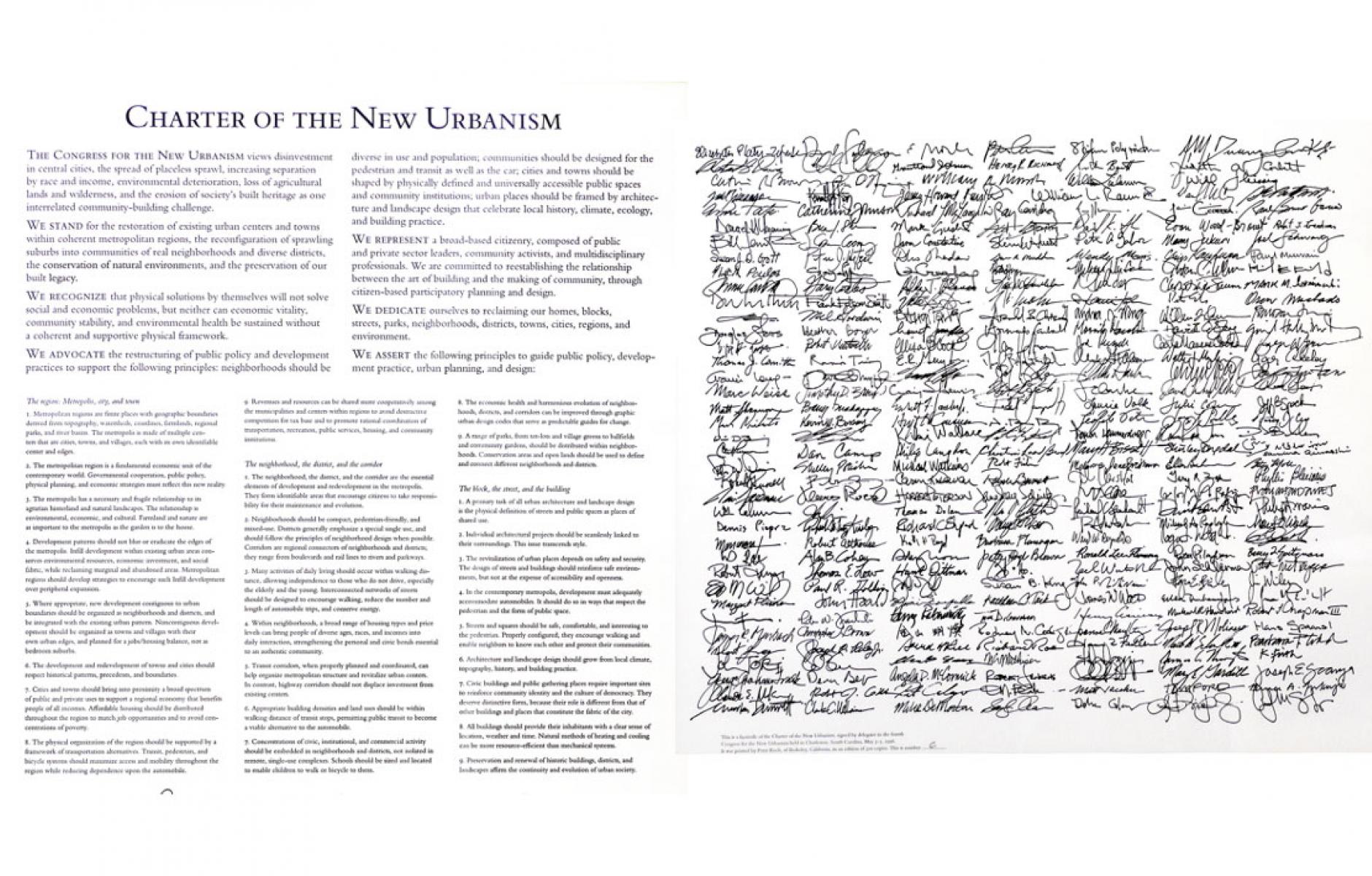
CNU launches Charter amendment process
CNU is launching a formal process to amend the Charter of the New Urbanism, it was announced in an On the Park Bench webinar. The CNU board will accept proposals for amending the Charter in October and November, 2023.
Any CNU member can propose an amendment. Amendments will be voted on during the next Congress, CNU 32 in Cincinnati. Those who vote must be members, but they don’t have to be present in Cincinnati.
Since the Charter of the New Urbanism is a signed document, it cannot be edited or changed. Similar to the US Constitution, it can be amended, explained members of the Charter Amendment Committee in the webinar.
“The board authorized a process for soliciting, refining, and selecting amendments to the Charter,” explained Mallory Baches, CNU president. “It has been a generation since it was written, and the board has seen the opportunity to reflect on how it might be expanded to respond to the new and evolving challenges that cities face.”
The Charter explains the principles through which New Urbanism is practiced. Articulating an alternative vision to urban and suburban sprawl, it was signed in Charleston, South Carolina, at CNU IV in 1996. CNU co-founder Elizabeth Plater-Zyberk was on the webinar, and she recounted how the Charter came to be. A group of a few hundred architects and like-minded individuals shared a common response to the degradation of the built environment. They wanted to have a wider influence over land-use policy. The group admired the effectiveness and impact, but not the design philosophy, of CIAM (Congrès Internationaux d'Architecture Moderne), which changed the direction of urban architecture in the mid-20th Century through its Athens Charter.
A generation since it was founded, the context of CNU’s work has changed, Plater-Zyberk said, explaining that: “There are a number of issues that should receive additional emphasis and should be recognized by the organization—environmental justice, climate change, and I’m sure we will hear about a number of others.” She closed by noting the importance of shared goals throughout CNU’s history. “Perspectives and approaches may differ, there needs to be room for individual considerations and actions, but our influence and impact is best served by the overarching unity of goals and guiding principles,” she said.
Committee member and University of Chicago Professor of Urbanism Emily Talen said the amendments should be brief—a maximum of 50 words—and similar in tone to the original 27 principles. Authors should back up the proposals with an abstract of 150 to 200 words that explains the principles in more detail. Authors should consider the scales of the Charter (region/city/town, neighborhood/district/corridor, block/street/building), and the proposals must be actionable—not platitudes.
The deadline for proposals is December 1, 2023. From December through February of 2024, the board will process the proposals, with editing by the committee. If there are overlapping proposals, the committee will work with the authors and see if there could be a joint proposal. Online discussion will occur in the Spring of 2024, followed by a vote during CNU 32 in mid-May of 2024.
See the webinar below for a more complete explanation of the process:
See the Charter amendment prosess page.




